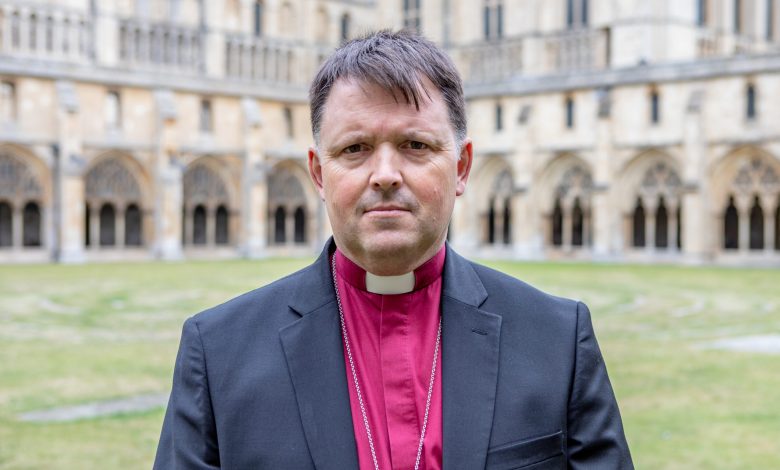Bishop of Norwich calls on Prime Minister to prioritise peace

As the world grapples with an unprecedented level of global conflict, a diverse group of leaders from various fields has come together to urge the UK government to prioritize diplomacy and development alongside defense. The Bishop of Norwich, Rt Revd Graham Usher, is among the over 60 signatories to an open letter addressed to Prime Minister Sir Keir Starmer, calling for a dedicated budget to support conflict prevention and resolution efforts. This initiative is particularly significant, as it brings together individuals from politics, the military, national security, academia, and faith communities, all of whom recognize the critical need for a more comprehensive approach to global conflict. The letter, which will be presented to 10 Downing Street ahead of the upcoming NATO summit in The Hague, emphasizes the importance of investing in initiatives that address the root causes of conflicts and help societies recover from the devastating effects of war.
The signatories to the letter represent a broad spectrum of expertise and experience, including former high-ranking officials such as the director of MI5, national security advisers, secretaries of state for defense, and commanders of the British armed forces. General Lord Richard Dannatt, a Norfolk native and former head of the British Army, is also among the signatories. The letter highlights the pressing need for the UK to recommit to its role as a global leader in conflict prevention and resolution, particularly in light of the current crises in Ukraine, Gaza, Sudan, and Myanmar. These conflicts have resulted in mass atrocities, displacement, and human suffering on an unprecedented scale, underscoring the urgency of the situation. By investing in peace-building efforts, the UK can help mitigate the effects of conflict and promote stability, security, and economic development in regions ravaged by war.
The letter’s emphasis on conflict prevention and resolution reflects a growing recognition that military action alone is insufficient to address the complex, deeply rooted causes of global conflict. Instead, a more nuanced approach is required, one that incorporates diplomacy, development, and humanitarian assistance to address the social, economic, and political factors that drive conflict. By investing in these efforts, the UK can help create a more stable and secure world, where families and communities can thrive without fear of violence or persecution. The letter’s authors argue that failing to fund peace-building work would not only undermine the UK’s global influence but also compromise its national security, as unresolved conflicts can have far-reaching consequences, including the spread of extremism, organized crime, and humanitarian crises.
The All-Party Parliamentary Group (APPG) on Conflict Prevention, which published the letter, is a testament to the growing recognition of the need for a more comprehensive approach to global conflict. The group’s chair, Alex Ballinger MP, a former Royal Marine who served in Afghanistan and worked as an aid worker in the Middle East and Pakistan, has firsthand experience of the devastating effects of conflict. Ballinger emphasizes that investing in conflict prevention is not only a moral imperative but also a strategic necessity, as the cost of conflict to the UK’s economy, national security, and global influence is staggering. He argues that the UK’s reputation as a leader in conflict prevention and resolution is at risk if it fails to prioritize these efforts, leaving the country more vulnerable to the consequences of global instability.
The letter’s signatories represent a diverse range of perspectives and experiences, from faith leaders to former politicians and military officials. Lord Neil Kinnock, Rory Stewart, Sir Malcolm Rifkind, and the Bishop of London are among the prominent figures who have lent their support to the initiative. Leaders of Britain’s Jewish and Muslim communities have also signed the letter, highlighting the importance of interfaith cooperation and dialogue in promoting peace and understanding. This broad coalition of supporters underscores the urgency and importance of the issue, as well as the recognition that conflict prevention and resolution require a collective effort that transcends party lines and ideological differences.
In conclusion, the open letter to Prime Minister Sir Keir Starmer represents a significant call to action, urging the UK government to prioritize diplomacy and development alongside defense in its national security strategy. By investing in conflict prevention and resolution efforts, the UK can help create a more stable and secure world, where families and communities can thrive without fear of violence or persecution. The letter’s signatories, who represent a diverse range of expertise and experience, are united in their recognition of the need for a more comprehensive approach to global conflict. As the world grapples with an unprecedented level of conflict and instability, it is imperative that the UK takes a leadership role in promoting peace, security, and development, and that its government responds to this call to action with the urgency and commitment that it deserves.









vy08c2